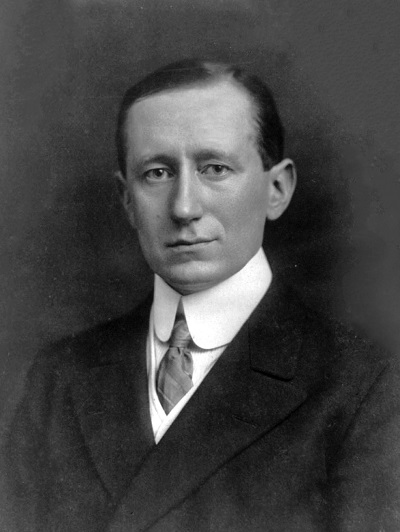The Republic lies at the bottom of forty-five fathoms of water; but not a soul went down with her.
Continuing Radios’ First Triumph,
with a selection from an article in Current Literature by Edward J. Wheeler. This selection is presented in 2 easy 5 minute installments. For works benefiting from the latest research see the “More information” section at the bottom of these pages.
Previously in Radios’ First Triumph.
Time: 1909
Place: Mid Atlantic

Public domain image from Wikipedia
It sounds like a fairy story, and it has a beautiful ending, as all fairy stories must have. The Republic lies at the bottom of forty-five fathoms of water; but not a soul went down with her. The transfer of 1,500 persons, more or less, including all the passengers of the Republic and the Florida and the crew of the former, in small boats, in the open sea, to the decks of the Baltic, took twelve hours of hard work, but it was effected without a mishap. The lady in a blue silk night-robe who sat down on deck while Jack Binns was calling to universal space for help, and who began combing her hair, remarking that if she was going to die she might as well die looking her best, can still spread her sunshiny philosophy among the living. The stout, motherly looking woman, “in a bath-robe that flamed like a Jamaica sunrise,” who went about distributing hairpins and smiles while the green waves were chasing the engineers out of the engine-room, will probably have use for many hairpins in the future. The lady who played solitaire in the midst of the peril can play again. The Florida reached port under her own steam, and it is possible she could have done so with all the passengers of both ships; but it is not certain, says James B. Connolly, the writer, who was on board the Republic, and who tells the story in Collier’s:
One thing that the passengers on this ship are well convinced of is that this Marconi system is a great blessing. There were those two ships lying out there helpless in the fog — the Republic, with her engine-room filled with water, unable to turn her screws; the Florida, in fear that in attempt ing to drive ahead she might be driven under. With no wireless working we might have lain out there for a week in that fog; a week at this time of the year means certain bad weather for some length of time; a few hours of heavy weather would probably have settled both ships; and with those 1,500 people driven from the ships to the boats — and here let it be said that neither ship carried half enough boats or life-rafts for a full passenger list — it is a sure thing that between the sea and the frost it would not have been dozens, but hundreds, that would have been lost — possibly the 1,500.”
“It is not true,” says the Philadelphia Ledger, “that the age of romance and heroism is dead. Nothing could have been more thrilling than the episode of the wreck of the Republic; nothing finer than the courage with which the human beings involved met the test.” “Wireless telegraphy,” remarked the New York Evening Sun, “has been hailed as a marvel of science, but the service it has done humanity today sets it far higher in the people’s minds. It will hereafter be considered as indispensable a part of any steamship’s equipment of safety as her charts or her navigator. It is the steamship’s invisible life-line, by which the safety of her passengers is safeguarded in a degree which no traveler of ten years ago could have dreamed. It is the best of modern magic.” In a message to Congress a few days after the collision and the rescue, President Roosevelt recommended a law requiring all ocean-going steamships carrying considerable numbers of passengers to install a wireless service. Congress man Burke has introduced such a bill. A chain of wireless stations already extends along our Atlantic, Pacific, and Gulf shores, and even Alaska, Porto Rico, Hawaii, and the Philippines are equipped. This latest of scientific marvels has already become a part of the daily humdrum of life, and there are enterprising schoolboys in most of the coast cities who have run up a pole of their own in the back yard., and who can sit in their rooms and hear the liners talking to each other out in the ocean. One of our magazine poets, Mr. Oppenheim, has given us recently the “Song of the Wireless”:
Who will gather my flying reins and bridle my headlong speed?
Who will hold me back on my whirlwind track as I carry the hidden screed?
Do you think you have conquered time, loud slaves of the narrow rail?
I will leave you a thousand miles behind in the teeth of an open gale!
When the storm-wrecked steamer limps through the mist and the swirling spume,
I push a way to the outer day and tell of the vessel’s doom.* * * *
I have come unseen with secret speech, I have guarded the tale unheard;
I have put mine eyes on the journey’s end and delivered the faithful word.
| <—Previous | Master List | Next—> |
Edward J. Wheeler begins here. Gugllelmo Marconi begins here. Arthur D. H. Smith begins here.
More information here and here, and below.
 |
We want to take this site to the next level but we need money to do that. Please contribute directly by signing up at https://www.patreon.com/history
Leave a Reply
You must be logged in to post a comment.